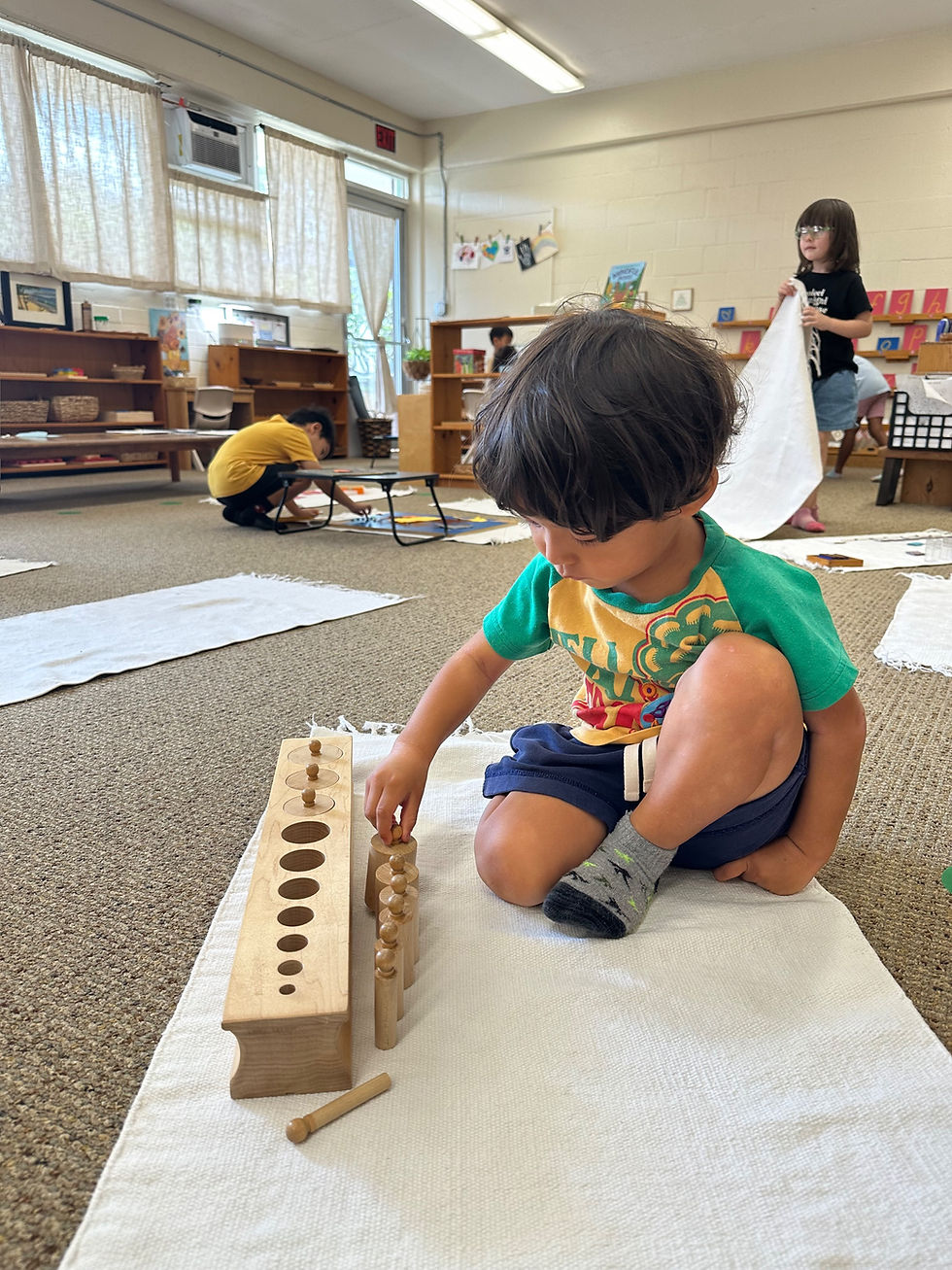The Importance of Early Childhood Education
- Jyo Bridgewater

- Aug 12, 2025
- 1 min read
Earlier in the year, we welcomed parents of children in the Preschool & Kindergarten Program to campus for 'Ohana Days, where they experienced their child’s classroom for themselves.
Through circumstances both expected and unexpected, I was given the very great gift of working for a few days in two of our preschool classrooms. It was a joy and a privilege to have this more protracted look at students whom I’ve had the pleasure of observing since the beginning of the school year. What a remarkable opportunity to see–and validate–the Montessori philosophy in action.
Children demonstrated so much growth, making smooth transitions from morning arrival and play to learning in circle. They gathered, listened, asked questions, and tried new games and activities. The children were responsive to lessons in geometry, grammar, and science. It was good to see independent choices, a wide variety of work (sensorial, practical life, math, language, and culture), creative extensions, and extended effort on large jobs (for example, the work and completion of a continent map.) When indicated, the supporting teachers redirected strategically.
My Montessori elementary training instilled a great respect and awe for the importance of early childhood education. Guiding impressions and seminal lessons are set in the preschool years. Most significantly, the ability to turn curiosity into knowledge and the freedom to practice this, makes lifelong learning not just a goal, but an achievable reality.












